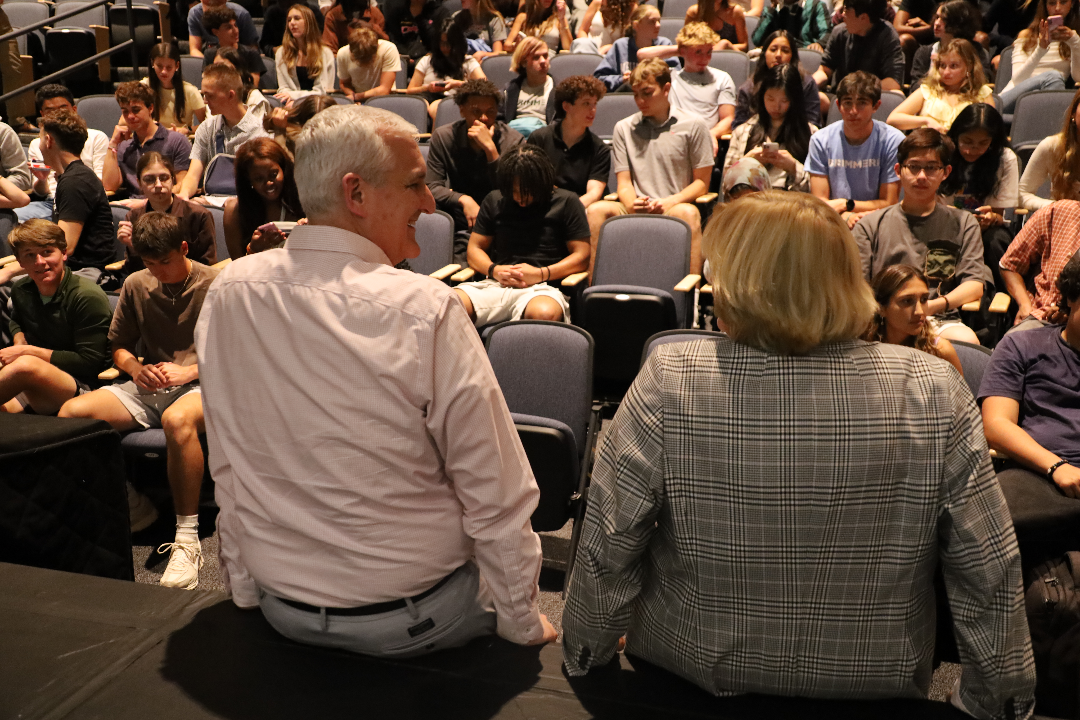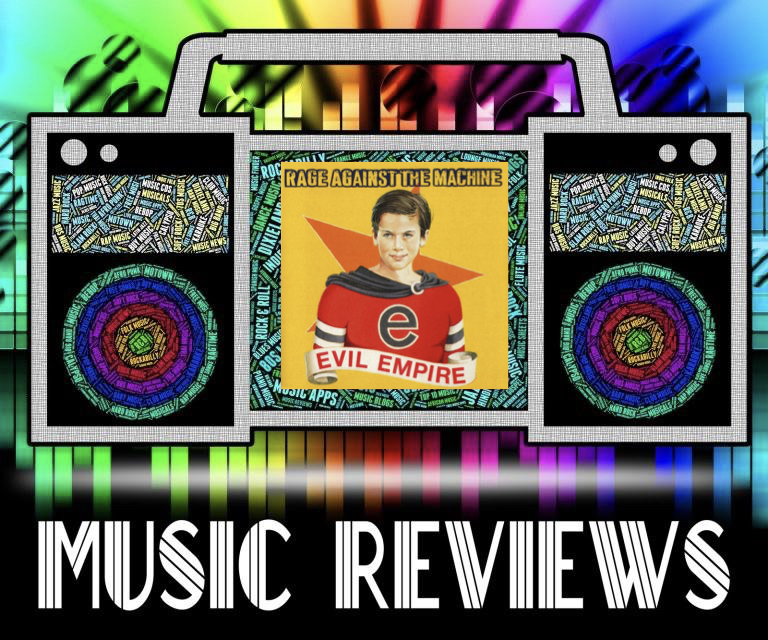Music Review: Rage Against The Machine’s ‘Evil Empire’
March 8, 2021
Rage Against the Machine’s sophomore record was a slight shift from their self-titled first album, released four years earlier.
Evil Empire, released in 1992, still maintains the same energy and political message, but with more focus on dynamics.
The first track, “People of the Sun,” uses a repeated rhythmic guitar riff. This song is a weaker track mainly because of its repetition and use of panning, which is more headache-inducing than musical. However, the ending is good because it feels much more full than the rest of the song.
The most popular track of the album, “Bulls On Parade,” feels like the quintessential Rage song. The song features slight shifts in dynamics of the instruments, refraining poetry for a majority of the lyrics, and Tom Morello’s distinct guitar sound. Lyrically, the song is about the military industrial complex and has a focus on the destruction that U.S. imperialism brings to its victims.
“Vietnow” is my favorite track of the LP, which dynamically feels different for Rage without losing the energy they have in louder songs. This song also feels different rhythmically. The drums sound unique and more centerstage compared to other songs. The lyrics in “Vietnow” are about the right-wing radio of the late 20th century, which controlled the perception of the masses through the media.
“Revolver” starts off with a beeping noise that pans from left to right and feels almost derivative before falling into a song that feels different from what I expect of Rage. The lyrics are whispered, and when lead vocalist Zack De La Rocha raises his voice, it isn’t mixed as high as in other tracks. This song is definitely a good change in their music, but it makes me further dislike the amount of panning used in this album.
“Snakecharmer” is weaker because it focuses more on the instrumentals than De La Rocha’s poetry. It creates the same energy of political anger that other Rage tracks do, it’s just less lyrically interesting.
Another weak Rage song, “Tire Me,” has lyrics that feel more cliche. However, the ending line “We’re already dead” redeems it because it conveys the emotion of the message better than the rest of the lyrics. The instrumentals are similar to “Snakecharmer,” though it’s a bit too fast in my opinion.
“Down Rodeo” feels original for Rage in a very good way. The message is conveyed and the instrumentals are not pushing the anger of the song. The lyrics repeat the line “So now I’m rollin’ down Rodeo with a shotgun, These people ain’t seen a brown skin man, Since their grandparents bought one,” which perfectly share the message about bourgeois white America.
The next song, “Without a Face,” is about an illegal immigrant who has been imprisoned and exploited by the capitalist U.S. system. It conveys that because the person in the story doesn’t have a green card, he is treated as if he isn’t human. This song is one of my favorites from the album because the instrumentals blend perfectly with the lyrics and the emotional meanings behind them.
“Wind Below” is a song about the capitalist state of darkness found in warmongering imperialist western powers. It references indigenous revolutionaries of Mexico and calls out the propaganda machine of the private mass media: “And GE is gonna flex and try and annex the truth, And NBC is gonna flex and cast their image in you, And Disney bought the fantasies and piles of eyes, And ABC’s new thrill rides of trials and lies.” This song is another amazing addition to the album. It has the perfect mix of vocals and lyrics to convey the meaning behind the story.
“Roll Right” has a focus on its very apparent bass line throughout the song. The difference is that most songs are carried by guitar but this song is carried by the bass line, which is less common in Rage songs. This song focuses on the Israeli occupation of Palestinian land, comparing Gaza to Tiananmen Square.
A good way to close out the album is “Year of the Boomerang,” which brings the album-long themes of western imperialism and capitalism full circle. It refrains, “I got no property but yo, I’m a piece of it,” which refers to the proletariat and how they are considered property by those who own the means of production. The song is a less powerful closer than their self-titled album’s closer, “Freedom,” but it still ends the album with a powerful message about global capitalism.
I would give Rage Against the Machine’s Evil Empire a 4/5 stars because it is weak at the beginning but gets significantly better as the album goes on.

























































